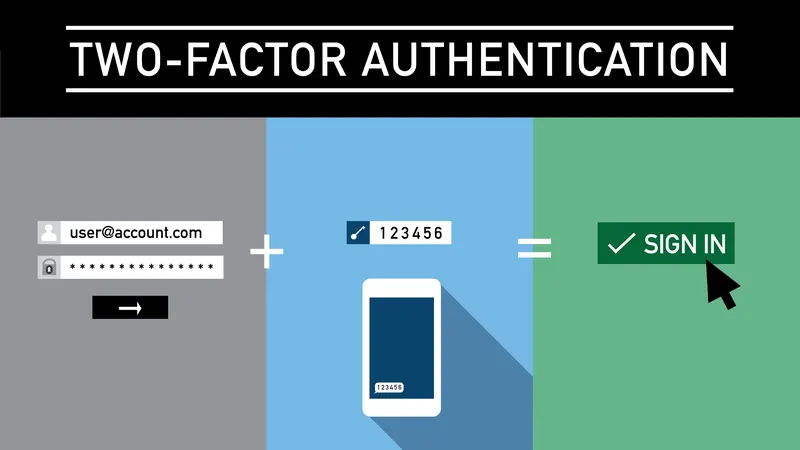Online gambling websites contain some of the most sensitive data on the internet: user accounts, financial transactions, personal information, and payment details. This treasure trove of valuable information makes gambling sites prime targets for cybercriminals who seek to exploit vulnerabilities for financial gain.
The stakes are particularly high in the gambling industry because players often maintain significant account balances, conduct frequent transactions, and provide detailed personal information including banking details and identification documents. A single security breach can result in devastating financial losses for both players and operators.
Hackers specifically target gambling websites with weak security measures to steal money, personal data, and even manipulate game outcomes. The consequences extend beyond immediate financial losses to include identity theft, unauthorized transactions, and compromised personal privacy.
82 Lottery shares practical experience in identifying fundamental security elements, helping players protect themselves by understanding what to look for when evaluating online gambling platforms. This knowledge empowers players to make informed decisions about which platforms to trust with their money and personal information.
What Are HTTPS and SSL?
Understanding the basic technologies that protect online communications is essential for any online gambling participant. These technologies form the foundation of internet security and are particularly crucial for gambling websites.
HTTPS (HyperText Transfer Protocol Secure)
HTTPS represents the secure version of the standard HTTP protocol used for transmitting data between web browsers and servers. When you visit a website using HTTPS, all communication between your device and the server is encrypted, making it extremely difficult for third parties to intercept or modify the data.
The “S” in HTTPS stands for “Secure,” indicating that the connection uses encryption to protect data in transit. This encryption ensures that even if someone intercepts the data transmission, they cannot read or understand the information being exchanged.
SSL (Secure Sockets Layer)
SSL is the underlying encryption technology that makes HTTPS possible. It creates a secure channel between your browser and the website’s server, encrypting all data that passes through this connection. Modern implementations actually use TLS (Transport Layer Security), which is the successor to SSL, but the terms are often used interchangeably.

The Critical Role of SSL/HTTPS
These technologies serve three primary functions in online gambling security:
- Preventing Eavesdropping: Encryption ensures that hackers cannot intercept and read sensitive information like passwords, banking details, or transaction data.
- Preventing Data Tampering: SSL certificates verify that data hasn’t been modified during transmission, protecting against attacks where hackers might try to alter transaction amounts or game results.
- Preventing Website Impersonation: SSL certificates help verify that you’re connecting to the legitimate website and not a fraudulent copy designed to steal your information.
Essential Security Elements for Safe Gambling Websites
A comprehensive security framework for online gambling platforms requires multiple layers of protection working together. Understanding these elements helps players evaluate the security posture of potential gambling platforms.
1. Valid SSL Certificates
Every legitimate gambling website must display “https://” in the URL and show a padlock icon in the browser’s address bar. This isn’t just a nice-to-have feature – it’s an absolute requirement for any site handling financial transactions.

Verifying SSL Certificates:
- Click on the padlock icon to view certificate details
- Check the certificate issuer (should be a recognized authority like DigiCert, Comodo, or Let’s Encrypt)
- Verify that the certificate is current and not expired
- Ensure the certificate covers the specific domain you’re visiting
2. Data Encryption Standards
Robust gambling platforms implement multiple layers of encryption to protect player data both during transmission and when stored in databases.
Transmission Encryption: All sensitive data, including passwords, credit card numbers, and transaction details, must be encrypted using industry-standard protocols. Modern sites should use at least 256-bit SSL encryption, which provides extremely strong protection against unauthorized access.
Database Encryption: Beyond encrypting data in transit, reputable platforms also encrypt sensitive information when stored in their databases. This means that even if hackers gain access to the database, they cannot read the encrypted information without the decryption keys.
3. Two-Factor Authentication (2FA)
Two-factor authentication adds an essential additional layer of security by requiring users to provide two different types of verification before accessing their accounts.
Common 2FA Methods:
- SMS codes sent to registered mobile numbers
- Email verification codes
- Authenticator app codes (Google Authenticator, Authy)
- Hardware security keys for maximum protection
2FA is particularly important for gambling accounts because it protects against unauthorized access even if someone obtains your password. This protection is crucial for preventing unauthorized withdrawals and account manipulation.
4. Suspicious Activity Monitoring
Advanced security systems continuously monitor user accounts for unusual activity patterns that might indicate unauthorized access or fraudulent behavior.
Monitoring Elements:
- Unusual login locations or IP addresses
- Uncharacteristic betting patterns
- Large or frequent withdrawal requests
- Access from new devices or browsers
- Multiple failed login attempts
When suspicious activity is detected, the system should immediately alert the account owner and may temporarily restrict account access until the user can verify their identity.
5. Transparent Privacy Policies
Legitimate gambling platforms maintain comprehensive privacy policies that clearly explain how they collect, store, and protect user information. These policies should be easily accessible and written in plain language that users can understand.
Key Privacy Policy Elements:
- Clear explanation of data collection practices
- Details about data storage and retention policies
- Information about third-party data sharing (if any)
- User rights regarding their personal information
- Contact information for privacy-related inquiries
Quick Security Verification Methods for Casino Websites
Players can perform several simple checks to assess the basic security posture of gambling websites before creating accounts or depositing money.
URL and SSL Verification
The most basic security check involves examining the website’s URL and SSL certificate status:
- Check the URL: Ensure it begins with “https://” rather than “http://”
- Look for the padlock: A closed padlock icon should appear in the address bar
- Verify the certificate: Click the padlock to view certificate details and confirm it’s issued by a recognized authority
- Check certificate validity: Ensure the certificate is current and covers the specific domain
Security Information Pages
Reputable gambling websites typically maintain dedicated pages explaining their security measures:
- Look for “Security,” “Privacy Policy,” or “Terms of Service” links
- Review information about data protection measures
- Check for mentions of encryption standards and security protocols
- Look for information about Casino Certification Organizations and their security audits
Two-Factor Authentication Testing
Before depositing significant funds, test whether the platform offers and properly implements two-factor authentication:
- Check account settings for 2FA options
- Attempt to enable 2FA and verify it works correctly
- Test the 2FA system with a small transaction or login attempt
- Ensure 2FA is required for sensitive operations like withdrawals

Risks of Websites Without SSL and Security Features
Operating without proper security measures exposes both gambling platforms and their users to severe risks that can result in significant financial and personal harm.
Website Impersonation Attacks
Without SSL certificates, it becomes much easier for criminals to create fake versions of gambling websites that appear legitimate but are designed to steal user credentials and funds.
Common Attack Scenarios:
- Fraudulent websites with similar domain names
- Phishing emails directing users to fake login pages
- Man-in-the-middle attacks that intercept and redirect traffic
- Social engineering attacks using fake customer support
Data Interception and Theft
Unencrypted connections allow hackers to intercept sensitive information transmitted between users and gambling websites:
- Financial Information: Credit card numbers, banking details, and transaction records
- Personal Data: Names, addresses, phone numbers, and identification documents
- Account Credentials: Usernames, passwords, and security questions
- Betting Information: Betting patterns, account balances, and transaction history
Account Manipulation and Fraud
Compromised accounts can be used for various fraudulent activities that harm both individual users and the gambling platform:
- Unauthorized Withdrawals: Criminals can drain account balances
- Betting Manipulation: Fraudulent bets using stolen account access
- Identity Theft: Personal information used for broader criminal activities
- Account Takeovers: Complete control of user accounts for ongoing fraud

Regulatory and Legal Consequences
Gambling platforms without adequate security measures face severe regulatory consequences:
- License Revocation: Regulatory bodies may revoke operating licenses
- Financial Penalties: Significant fines for security violations
- Legal Liability: Potential lawsuits from affected users
- Reputation Damage: Long-term damage to brand reputation and user trust
Recommendations from 82 Lottery
Based on extensive experience in online gambling security, 82 Lottery offers practical recommendations for players seeking to protect themselves online.
Essential Security Verification Steps
Before engaging with any gambling platform, players should complete these verification steps:
- HTTPS Verification: Always confirm the website uses HTTPS and displays the padlock icon
- SSL Certificate Check: Verify the SSL certificate is valid and issued by a recognized authority
- Security Policy Review: Read the platform’s privacy policy and security information
- 2FA Availability: Confirm that two-factor authentication is available and functional
- Security Contact: Identify how to contact the platform about security concerns
Account Security Best Practices
Players should implement strong security practices for their gambling accounts:
- Strong Passwords: Use unique, complex passwords for each gambling account
- Regular Password Changes: Update passwords periodically, especially after any security incidents
- Two-Factor Authentication: Enable 2FA on all accounts that support it
- Secure Devices: Only access gambling accounts from secure, trusted devices
- Network Security: Avoid using public Wi-Fi for gambling activities

Ongoing Security Monitoring
Maintaining account security requires ongoing attention and monitoring:
- Account Activity Review: Regularly check account statements and transaction history
- Security Alert Response: Respond immediately to any security alerts or suspicious activity notifications
- Software Updates: Keep browsers and security software updated
- Information Sharing: Be cautious about sharing account information or login credentials
Emergency Response Procedures
Players should know how to respond if they suspect their account has been compromised:
- Immediate Actions: Change passwords and contact customer support immediately
- Account Monitoring: Review recent transactions and account activity
- Financial Protection: Contact banks or payment providers if financial fraud is suspected
- Documentation: Keep records of all security incidents and communications
- Follow-up: Ensure all security measures are properly implemented after an incident
The Foundation of Safe Online Gambling
HTTPS and SSL certificates are not merely decorative elements designed to make websites look more professional – they represent the fundamental foundation of safe online gambling. These technologies provide essential protection against a wide range of cyber threats that could otherwise result in significant financial and personal harm.
82 Lottery’s commitment to security extends beyond implementing the latest technologies to include comprehensive user education and support. Players who understand security fundamentals and know how to verify security measures are better equipped to protect themselves and make informed decisions about which platforms to trust.
The responsibility for online gambling security is shared between platforms and users. While gambling operators must implement robust security measures and maintain them properly, players must also take active steps to protect their accounts and personal information. This partnership approach creates the strongest possible defense against cyber threats.
As the online gambling industry continues to grow and evolve, security measures will become increasingly sophisticated. However, the fundamental principles of encryption, authentication, and user education will remain central to protecting players and maintaining the integrity of online gambling platforms.
Players who take the time to understand and verify security measures before engaging with gambling platforms significantly reduce their risk exposure while positioning themselves to enjoy safe, secure online gambling experiences. The investment in security education and verification pays dividends in both peace of mind and protection against financial loss.


